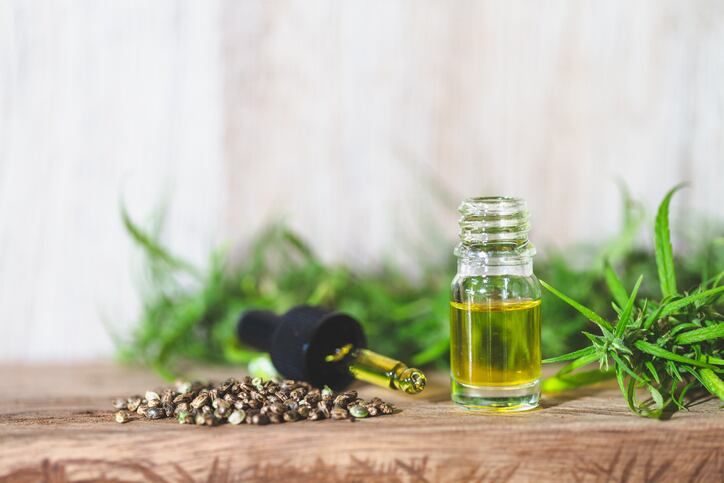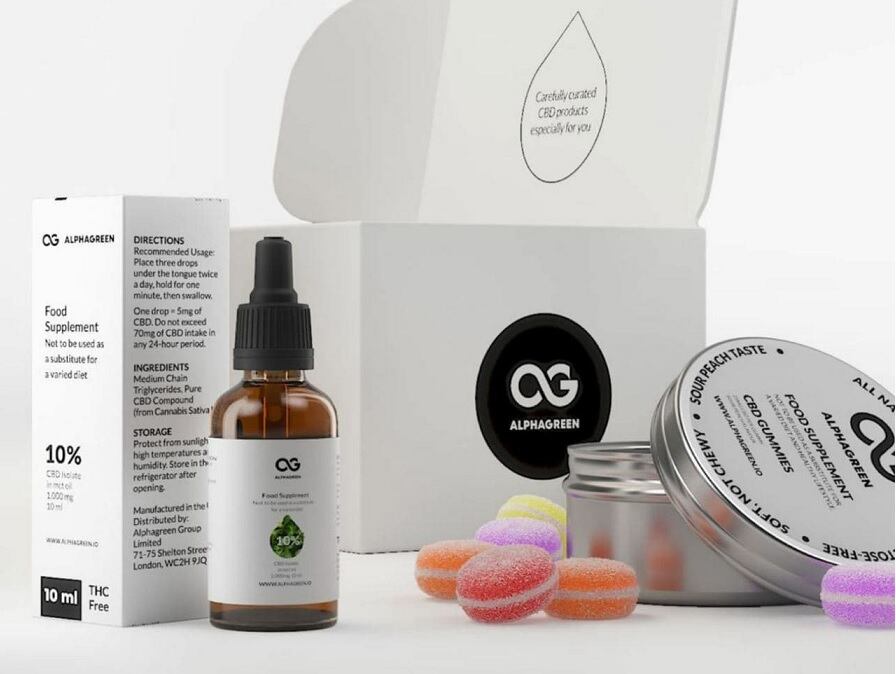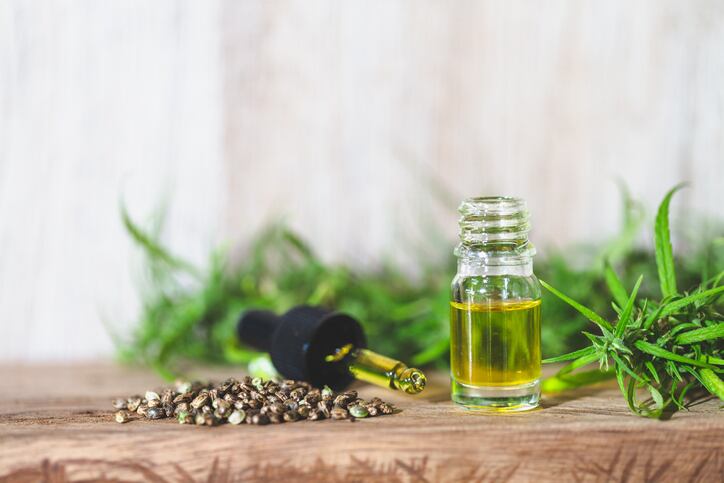The Association for the Cannabinoid Industry (ACI) and Centre for Medicinal Cannabis (CMC) created the report 'Health Guidance Levels for THC in CBD products: Safety Assessment & Regulatory Recommendations' to bring clarity to the murky legislative CBD landscape.
The ACI explains that CBD, extracted from the Cannabis Sativa plant, is not itself a controlled substance but there are at least 12 potential controlled contaminants in CBD products including various THC (tetrahydrocannabinol) compounds. This causes confusion among the public and UK businesses relating to the control status of products containing hemp, CBD and other cannabinoids.
In the majority of Europe, it is legal for industry hemp products to be sold provided they contain 0.2% THC or less - a maximum threshold set out by WHO. However, as of January 2019, the European Food Safety Authority (EFSA) announced that food products containing CBD products would be classified as Novel Foods under Act (EU) 2015/2283, and would require authorisation prior to being placed on the market.
Companies are therefore required to file a novel food application and have this approved by the EFSA before legally being able to sell such products. The EFSA announcements notwithstanding, regulations surrounding THC limits, as well as CBD inclusion in other products is largely unclear with many European countries adopting their own individual regulations.
In most European countries, maximum levels have been agreed for controlled cannabinoids in products for consumer use. This ranges from 0.001 mg/kg (EU (EFSA) and Germany) to 0.007 mg/kg THC in consumer products (Switzerland and Croatia), as well as THC limits in CBD end products (ranging from 0.05% in the Netherlands to <3% in Guernsey).
There's a misconception that 0.2% THC is allowed in finished products in the UK but according to the Home Office zero controlled contaminants are allowed, which the ACI and MCI say is unrealistic, incompatible with scientific convention and likely to be incompatible with case law.
New 'threshold of zero impurities'
To address the UK regulatory anomalies, the new report, which has been submitted to the Home Office and the FSA, has independently considered all the available data and recommends a THC safety limit of 0.03% or 21 μg per day.
The report says this recommendation accounts for the total controlled cannabinoid limit in a finished CBD food and consumer products (including other THCs and CBN, which are less common and potent than Δ9THC) and says this level of THC is highly unlikely to produce a positive THC drug test.
The report states: "We recommend that 0.03% is established as the ‘threshold of zero impurities’ for CBD products, based on our findings that lifetime exposure to contaminants at this limit would be indistinguishable from exposure to contaminants at ‘true zero’ in terms of toxicological and other relevant markers of drug action in humans."
“We fully understand that tackling drug misuse, and the harm it causes, is a top priority for the UK Government,” explains Dr Parveen Bhatarah, Regulatory and Compliance Associate, ACI and CMC. “CBD is not a controlled drug but any plant-derived CBD has potential to contain controlled cannabinoids. However, the Misuse of Drugs Regulations 2001 for CBD products demands that it contains no more than a defined trace percentage of controlled cannabinoids as an impurity."
That being said, the document also recommends that the Home Office consult the advice of the ACMD on rescheduling to Schedule 5 of the MDR 2001 products defined as "Any preparation or any ingredient to be used in a preparation that is designed for the oral administration of cannabidiol, containing a total concentration of not less than 0.03% cannabinol derivatives and of not more than 0.2% cannabinol derivatives in undivided preparations".
The report says the recommendation made by the World Health Organisation to allow CBD products with no more than 0.2% THC. The WHO Expert Committee on Drug Dependence stated that CBD products controlled at this limit would have a low potential for abuse. Health Guidance Levels for THC in CBD products. These findings are consistent with the conclusions of the ACMD in regard to the medicinal product Epidyolex, which contains no more than 0.1% THC, and which was found by the committee to have a “a low risk of abuse potential, low risk of dependency, and low risk of diversion.”
The report concludes: "As such, we recommend that CBD products containing between 0.03% and 0.2% controlled cannabinoids should be classified under Schedule 5 of the Misuse of Drugs Regulations 2001, and should be lawfully available for over-the-counter supply in the UK."
Research recommendations
Based on a gap review of the available literature, the paper outlines six key proposals for future research.These include: Further animal toxicology studies on the effects of purified cannabinoids, such as CBD, Δ9-THC, Δ8-THC, and CBN, more studies into the dose-dependent effects of these isolated cannabinoids in humans, randomised, placebo-controlled trials of these cannabinoids when combined in humans, further observational studies into CBD consumer behaviour in the UK, surveillance studies on consumers to monitor safety and tolerability, and more trials to assess how CBD products may affect drug tests.
“This evidence based initiative is important to allow a threshold for THC to be set in consumer CBD products that is safe for consumers and society, is enforceable by regulators and can be adopted by manufacturers,” says Dr Andy Yates, Scientific Associate for ACI and CMC. “By adopting these recommendations the UK can establish itself as a leading jurisdiction in setting unambiguous, enforceable, evidence based standards for CBD products, which the industry and the consumer has been calling for over the last few years.”
Dr Paul Duffy, ACI Toxicology Associate, adds: “Underpinning any recommendations on the levels of controlled cannabinoids in consumer products, is the principle of protection of the consumer from harm and compliance with the law.
“We considered that to be the primary objective of our scientific review and evaluation of the advances in analytical detection chemistry for human and animal toxicological data on THC. We also believe that these principles are at the core of any considerations of the FSA and Home Office. In modern society, evidence based decisions, underpinned by sound robust scientific data should be at the heart of safety for the consumer and we consider that the ACI/CMC report adheres to that. In my opinion, the proposed levels of THC are reasonable and manageable from a safety and legal perspective.”
On the basis of the literature review and safety assessments in this paper, the report makes the following policy recommendations:
- That CBD products containing between 0.03 percent and 0.2 percent controlled cannabinoids should be classified under Schedule 5 of the Misuse of Drugs Regulations act of 2001, and so should be lawfully available for over-the-counter supply in the UK.
- That the Home Office consider exempting dried hemp leaves and flowers from drug controls where the hemp has been lawfully grown or imported into the UK - essentially requesting that hemp farmers don't have to destroy the flower part of the plant as it's the highest value part of the crop.
- That the FSA require CBD companies to include warning labels for those at higher risk of adverse events.
- That the FSA consider post-marketing surveillance measures, such as a consumer app, to better identify product health risks.
- That the Home Office issue updated public guidance to clarify the legal controls on the manufacture and possession of products containing CBD and other cannabinoids.
- That the Home Office and FSA issue joint guidance to the CBD industry regarding the regulations and requirements for the transport, manufacture, and supply of CBD-based novel and non-novel food products.





